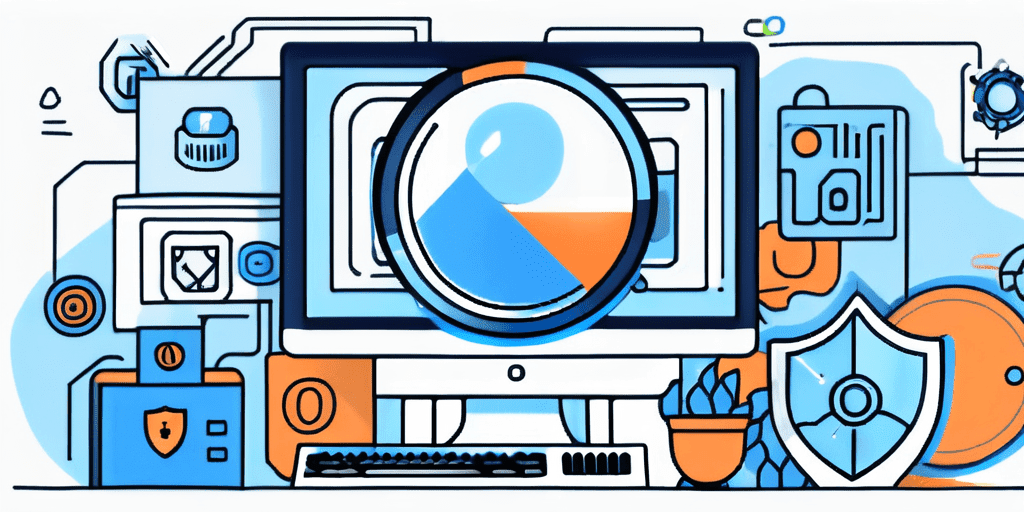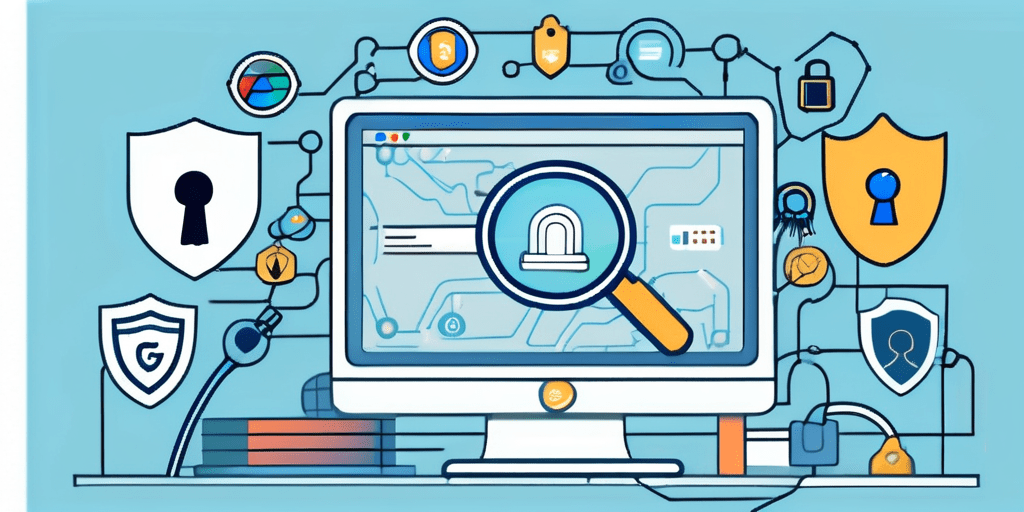In today’s digital age, where the internet has become an integral part of our lives, the need for robust cybersecurity measures cannot be overstated. As cyber threats continue evolving, exploring all available resources to enhance our defense mechanisms is essential. One often overlooked but highly potent tool is the mighty Google. Yes, you read that right! This article will delve into the fascinating world of Google hacking and how it can be leveraged for security purposes.
Understanding Google Hacking
At first glance, the concept of utilizing Google for security might seem counterintuitive. However, when we dig deeper, we realize that Google’s vast search index and advanced search operators can be exploited in various ways. Google hacking refers to the practice of using specialized search queries and techniques to uncover sensitive information that is unintentionally exposed on the internet.

By harnessing the power of Google, hackers can gain unauthorized access to valuable data, compromising the security of individuals and organizations alike. It is crucial for security professionals and internet users to comprehend the fundamental principles of Google hacking to effectively protect against such cyber threats.
The Concept of Google Hacking
Google hacking revolves around the idea that not all website administrators are aware of the potential vulnerabilities present in their websites. These vulnerabilities might inadvertently expose sensitive information to hackers, making it crucial for organizations to continuously monitor and secure their online presence.
The History and Evolution of Google Hacking
The concept of Google hacking originated in the early 2000s when a visionary hacker named Johnny Long started exploring the possibilities of using Google search queries to find vulnerable websites. Long’s groundbreaking research brought to light the potential risks posed by Google’s indexing capabilities and unveiled the extent to which sensitive information could be accessed through simple search queries.
As the internet landscape evolved, so did the techniques used in Google hacking. Hackers, driven by their insatiable curiosity and desire to exploit vulnerabilities, adapted to the advancements made by search engines. They discovered new ways to manipulate search operators and refine their techniques, further highlighting the urgent need for improved cybersecurity measures.
Over the years, Google hacking techniques have become more sophisticated and targeted. Hackers now employ advanced search operators, combine multiple queries, and utilize various tools to maximize their chances of finding valuable information. This constant evolution in the world of Google hacking necessitates a proactive approach to cybersecurity, with organizations and individuals staying vigilant and implementing robust security measures.
The Role of Google in Cybersecurity
While Google hacking may sound alarming, it is essential to acknowledge Google’s proactive role in combating cyber threats. As one of the most influential technology companies in the world, Google invests significant resources in enhancing its own security features and aiding others in their quest for a safer online environment.
Google’s Security Features
Google incorporates numerous security features into its search engine and other services to protect users’ data and ensure a secure browsing experience. These features include encryption, multi-factor authentication, and constant monitoring for potential security breaches. Additionally, Google has implemented advanced algorithms that automatically detect and block known malicious websites, safeguarding users from harmful content.
How Google Fights Cyber Threats
Google actively collaborates with cybersecurity experts, industry leaders, and law enforcement agencies to combat cyber threats on a global scale. Through initiatives like the Google Vulnerability Reward Program, ethical hackers are encouraged to report security vulnerabilities they discover, leading to better protection against potential exploits. Moreover, Google regularly releases security updates and patches to address new cyber threats as they emerge.
One of the key ways Google fights cyber threats is through its extensive research and development efforts. Google’s team of security experts constantly analyze emerging trends and evolving attack techniques to stay one step ahead of cybercriminals. By studying the tactics employed by hackers, Google gains valuable insights that help improve its security infrastructure and develop more effective countermeasures.
Furthermore, Google actively supports the cybersecurity community by sharing its knowledge and expertise. The company organizes workshops, conferences, and training programs to educate individuals and organizations about the latest threats and best practices in cybersecurity. By fostering a culture of collaboration and knowledge-sharing, Google aims to empower users and industry professionals to protect themselves against cyber threats.
In addition to its internal efforts, Google also plays a crucial role in raising awareness about cybersecurity. Through its various platforms and initiatives, such as Google Security Blog and Google Online Safety Roadshow, the company educates users about the importance of online safety and provides practical tips to enhance their digital security. By promoting a culture of vigilance and responsible online behavior, Google strives to create a safer digital ecosystem for everyone.
Google Hacking Techniques
If hackers can exploit Google’s powerful search capabilities, it is imperative for security professionals to be familiar with these techniques in order to effectively safeguard against potential threats. Let’s explore some of the core Google hacking techniques.

Basic Google Hacking Commands
Google’s search operators provide a range of possibilities for hackers to extract desired information. Simple commands such as using quotation marks, excluding specific terms, or focusing on specific file types can yield valuable results for individuals with malicious intent.
For instance, by searching for specific file extensions like login credentials in combination with targeted keywords, hackers could uncover vulnerable websites that unwittingly expose their sensitive data.
Imagine a scenario where a hacker wants to gain unauthorized access to a company’s internal network. By using the site operator along with specific keywords related to network infrastructure, the hacker can identify potential entry points and weak spots in the company’s security measures. This information can then be used to launch a targeted attack, bypassing firewalls and other protective measures.
Advanced Google Hacking Strategies
As the sophistication of cyber attacks increases, hackers have devised more advanced strategies to exploit Google’s search functionalities. These strategies involve combining multiple search operators, leveraging advanced search filters, and utilizing specialized tools to automate the process. By employing these techniques, hackers can quickly identify potential targets and exploit their vulnerabilities.
One such advanced strategy involves using the intitle operator in combination with other search operators to find websites that have specific keywords in their page titles. By focusing on websites that mention sensitive information like “confidential” or “passwords” in their titles, hackers can narrow down their search and increase their chances of finding valuable data.
Furthermore, hackers can utilize Google’s cache feature to access outdated versions of websites that may contain sensitive information. By using the cache operator along with targeted keywords, hackers can retrieve cached pages that were previously indexed by Google, even if the original website has been updated or removed.
The Implications of Google Hacking
Understanding the potential risks and implications of Google hacking is crucial for individuals, businesses, and organizations alike. By shedding light on the dangers associated with these cyber threats, we can develop a more robust cybersecurity strategy.

The Risks and Dangers of Google Hacking
Google hacking poses significant risks to enterprises and individuals, including data breaches, identity theft, and financial fraud. A simple search query could expose confidential business plans, customer records, or even personal details that could be exploited for malicious purposes. It is crucial for organizations to conduct regular security audits and take appropriate measures to mitigate these risks.
The Ethical Debate Around Google Hacking
The ethical implications surrounding Google hacking are a subject of ongoing debate. While the technique can potentially be used for nefarious activities, ethical hackers and cybersecurity professionals leverage these methods to identify vulnerabilities and secure systems before malicious actors can exploit them. Striking a balance between protecting privacy and ensuring cybersecurity is a challenge that requires constant examination.
Furthermore, it is important to consider the global impact of Google hacking. As the internet continues to connect people from all corners of the world, the risks associated with cyber threats become increasingly complex. Google hacking is not limited to a specific region or industry; it is a universal concern that affects individuals, businesses, and governments worldwide.
Moreover, the sophistication of Google hacking techniques continues to evolve, making it even more challenging for organizations to stay ahead of potential threats. Cybercriminals are constantly finding new ways to exploit search engine vulnerabilities, making it imperative for businesses to invest in cutting-edge cybersecurity tools and technologies.
Additionally, the consequences of falling victim to a Google hacking attack can be devastating. For businesses, the loss of sensitive data can lead to reputational damage, financial losses, and legal repercussions. Individuals may find themselves dealing with identity theft, compromised financial accounts, and a loss of privacy. The impact of these attacks can be long-lasting and difficult to recover from.
Protecting Yourself from Google Hacking
Considering the ever-increasing prevalence of cyber threats, it is essential for individuals and organizations to take proactive steps to safeguard against Google hacking and other similar attacks.
Google hacking, also known as Google dorking, is a technique used by hackers to exploit vulnerabilities in web applications and networks by utilizing advanced search operators in Google’s search engine. These operators allow hackers to find sensitive information that is inadvertently exposed online, such as usernames, passwords, and confidential documents.
Best Practices for Online Security
Implementing strong passwords, regular software updates, and two-factor authentication are some of the fundamental practices that can significantly enhance online security. However, it is important to note that Google hacking goes beyond traditional security measures. It requires a comprehensive understanding of how hackers exploit search engine capabilities to gain unauthorized access to sensitive information.
By regularly educating employees and users about potential risks and maintaining a culture of cybersecurity awareness, businesses can create a resilient defense against Google hacking and other malicious activities. Conducting regular security audits and penetration testing can also help identify vulnerabilities before they can be exploited.
Google Tools for Enhanced Security
Google provides an array of tools that can aid in identifying potential security vulnerabilities and strengthening overall security measures. Tools like Google Security Checkup, Google Authenticator, and Google Safe Browsing offer additional layers of protection for users and organizations, effectively minimizing the risks associated with Google hacking.
Google Security Checkup allows users to review and adjust their security settings, ensuring that their accounts are protected against unauthorized access. Google Authenticator provides an extra layer of security by enabling two-factor authentication, making it more difficult for hackers to gain access to accounts even if they manage to obtain the username and password. Additionally, Google Safe Browsing helps protect users from visiting malicious websites by displaying warnings when potential threats are detected.
As technology continues to advance at an unprecedented pace, it is crucial for individuals, organizations, and cybersecurity professionals to stay ahead of the curve. Leveraging the power of Google for security purposes, while being mindful of the potential risks and ethical considerations, can provide valuable insights into vulnerabilities and help build a more secure digital landscape for all.
By staying informed about the latest security practices and utilizing the tools and resources available, individuals and organizations can effectively protect themselves against Google hacking and other cyber threats. Remember, prevention is always better than cure when it comes to cybersecurity.
As you navigate the complexities of cybersecurity and Google hacking, remember that the expertise of seasoned professionals can make all the difference. Blue Goat Cyber, a Veteran-Owned business, is dedicated to securing your operations, specializing in medical device cybersecurity, penetration testing, and compliance with HIPAA, FDA, SOC 2, and PCI standards. Don’t leave your security to chance. Contact us today for cybersecurity help and partner with a team that’s as committed to your protection as you are.
